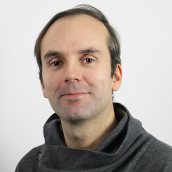It’s not all about the money: achieving universal health coverage
Universal health coverage (UHC) is a global priority, but how can financing for health be improved to boost progress towards the SDGs agenda?
-
Date
May 2019
-
Area of expertiseHealth
-
CountryNigeria
-
KeywordHealth financing (HF)
The health Sustainable Development Goal (SDG 3) aims to ensure healthy lives and promote well-being for all at all ages, focusing in particular on previously neglected groups and regions. Achieving the health SDG requires swift action across other sectors, as safe drinking water, sufficient and nutritious food, and clean air are all imperative for good health. Unless drastic action is taken now, climate change will have a devastating impact on people’s health: WHO predicts more than 250,000 additional deaths per year between 2030 and 2050 from malnutrition, malaria, and diarrhoea. People living in low- and middle-income countries will be disproportionally affected by these impacts, as those countries are insufficiently prepared to cope with drastic climate changes.
As such, it is imperative to strengthen the capacity of these countries to adequately respond to national and global health risks. One of the crucial ways of achieving this is through UHC, a path which aims to ensure all people have access to high-quality and affordable healthcare services. However, while UHC is a global priority, many countries still struggle to find an effective and efficient way of financing the development of their healthcare systems.
Supporting progress towards UHC was a key theme during this year’s World Health Day, which coincided with the fourth Annual Health Financing Forum. Organised by the World Bank and USAID, the forum brought together Ministers of Health from around the world and their finance counterparts to discuss how to implement new ways of financing healthcare services.
Even though mobilising additional funding is an important step in achieving UHC, it is not a solution in itself – for finance to have impact, other careful planning and policymaking is needed from a range of different stakeholders.
Don’t just spend more, spend better
Countries looking to implement new services towards UHC often face challenges within the political economy for doing so, as mobilising funding for health can strain the interactions between the ministries of health and finance, with the ministries of finance having to balance the demands of all sectors in their yearly budget allocations. These issues all sit within what is known as fiscal space analysis, where countries have to decide what they want to achieve, how much this will cost, estimating what they can finance, and then think about ways to mobilise additional financing.
However, resource mobilisation and the issue of trying to find additional financing for health is only one part of health system reforms on the path towards UHC. A key initial step is identifying priority areas for investment, measured by the relative amount of health impacts that can be expected from them, as a function of their cost.
An often-overlooked second part of a comprehensive fiscal space analysis is considering how to maximise already available resources. Countries need to consider how to get more out of what is already being spent on health, as implementing new and scaling up existing health interventions will always require additional funding. As donors move out of countries that are on average becoming better off, governments have to manage this transition by striving to be more efficient, and make larger strides towards the SDGs by reorganising the way that they use existing resources.
Building in-country capacity as a new priority
A new way of working should be focusing on building in-country capacity, so that a continuous stream of technical assistance becomes obsolete. By improving the capacity of those within the ministries of health, countries themselves will be able to see how raising more resources for health is just one part of a wider chain of challenges between deciding what the health system wants to do next and actually delivering new or more health services to their population.
In Nigeria, we launched a fellowship for public servants of the Ministry of Health, focusing on the issues of health financing and public financial management. Following the first cohort completing the programme, they are in a better place to provide advice around health financing issues and navigate challenges policymakers face in reforming healthcare systems to achieve UHC.
Mobilising additional financing isn’t a magic solution. Policymakers and practitioners need to assess all options, including those which raise the budgetary envelope without additional financing but which are often overlooked (e.g., efficiency savings, making more out of what you already spend, etc.), and they also need to set the context for any additional financing to actually have an impact by ensuring that it is targeted at priorities and that there is sufficient national capacity to ensure efficient and effective spending.
This article originally appeared in Impakter.

